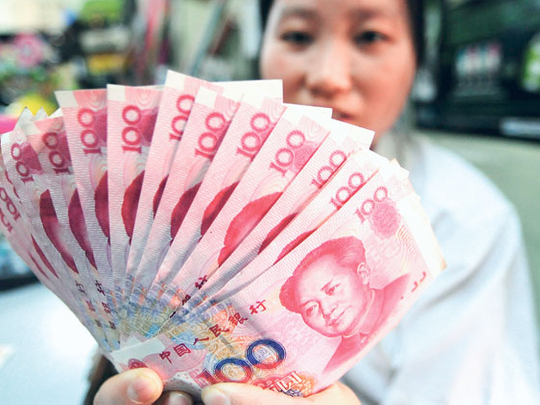
We waited for ages for China to move on the yuan. When it did, the dollar-yuan rate zigzagged and ended pretty much where it began. The few tiny morsels were barely enough to whet your appetite.
The announcement of a de-pegging has achieved some benefits for China. The US Congress has cooled off a bit, though we don't know how long it will last. The "yuan free lunch" expectation has revived the weak Shanghai and Hong Kong stock market, providing the courage to stage the initial public offering of Agricultural Bank of China Ltd. Only China can do such a large IPO in a difficult market.
I'm not suggesting the de-pegging announcement is all hot air. The yuan will appreciate somewhat in the next 12 months, just not by much, probably less than 5 per cent. The Australian dollar could move by that much in a week.
While we have been talking about yuan appreciation for the past five years, the currency has already strengthened in real terms through inflation. Real-estate prices have tripled in this business cycle. As property makes up a third of living costs on average, this alone means the real yuan value has doubled. Unlike five years ago, the yuan is no longer undervalued.
Trade imbalances
It's a puzzle that Americans are so worked up about China's currency. Is it really good for the US if China's currency strengthens a lot?
US politicians think that Chinese will buy more American goods on a rising yuan to balance bilateral trade. But they don't pay attention to the possibility that Americans would pay more for Chinese goods. It is possible and likely that a stronger yuan will increase the US trade deficit with China for an extended period.
Paying more
While the yuan may not appreciate much, China's factory wages will rise a lot. Americans will pay more for Chinese goods anyway. When the supply of labour is endless, as in China over the past 20 years, productivity goes to consumers, investors or tax collectors, but never workers. This is why China has had a rapidly growing economy, but stagnant wages.
When the labour market moves toward full employment, wages will rise faster than the overall economy to catch up with productivity gains. Chinese labour incomes as a share of gross domestic product may rise by more than 10 percentage points in a decade.
When wages rise faster than productivity, it means inflation. It is a necessary byproduct of China's transition to full employment. Wages will probably quadruple and nominal GDP will triple over the next decade. Half of the latter would be from real growth, the other half inflation. China's export prices may double, too.












